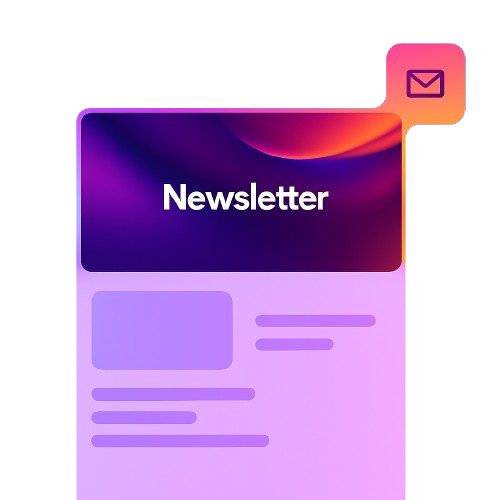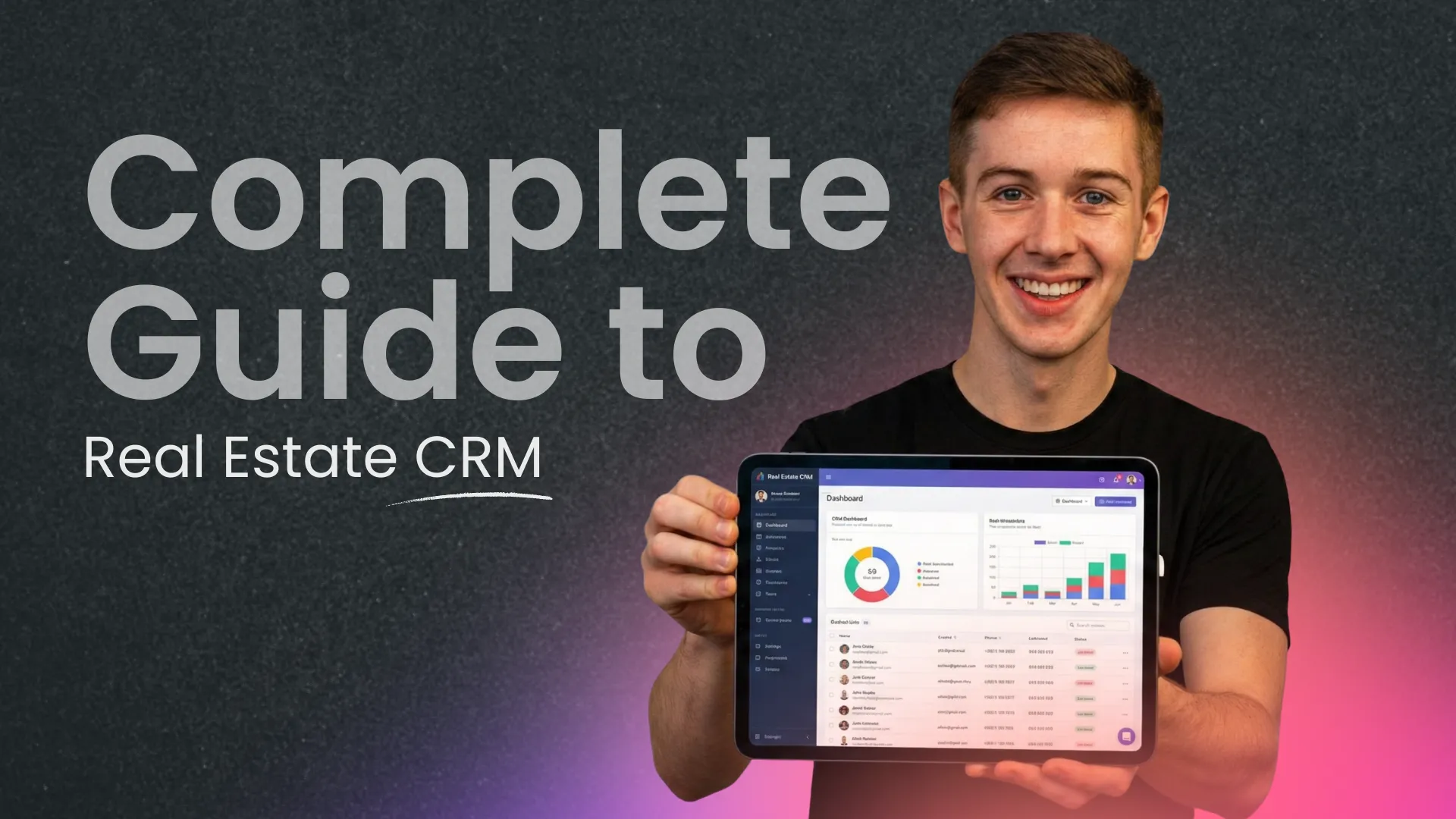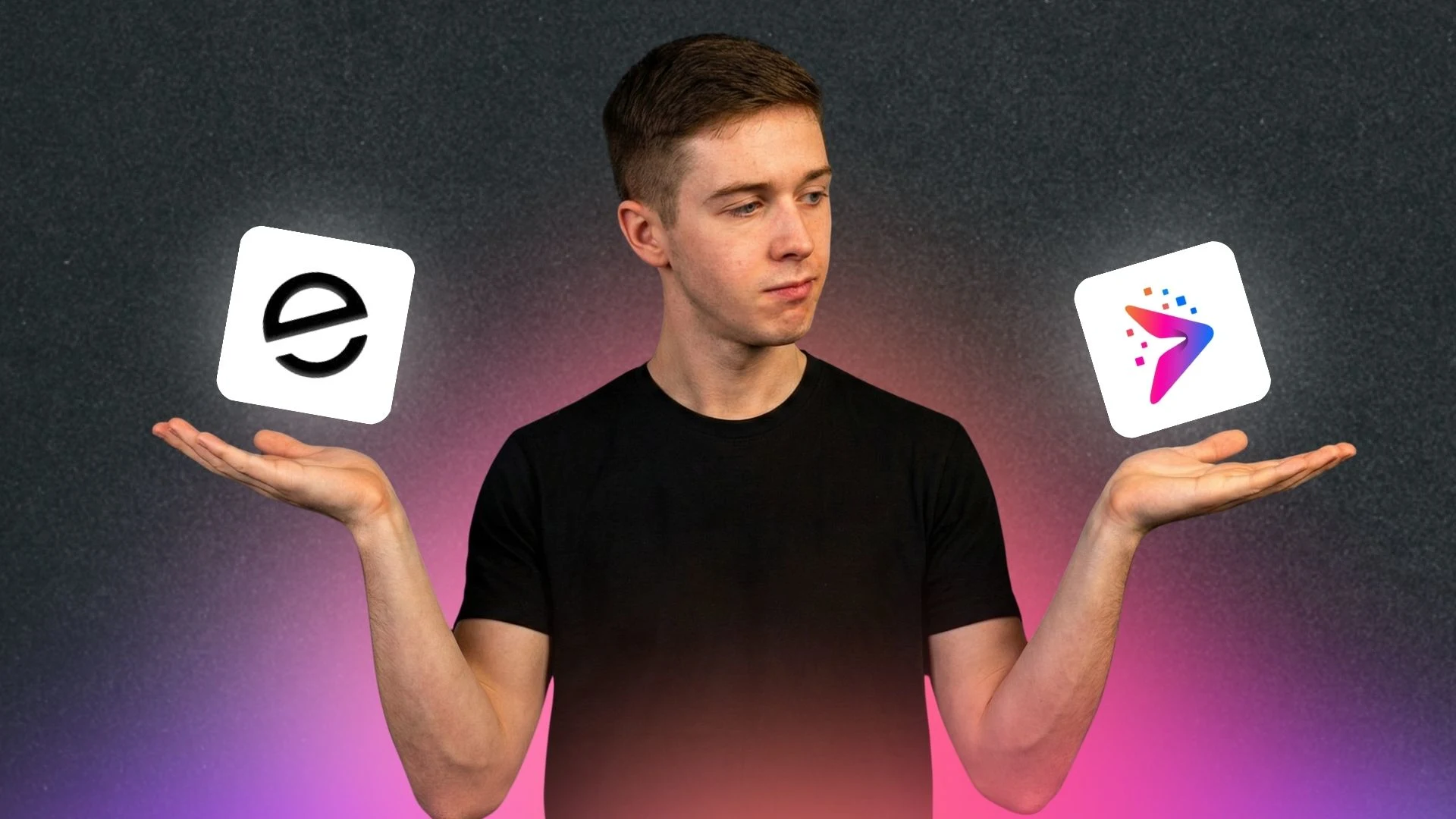Coaches looking to establish a professional online presence often face challenges related to web design and technical skills. AI website builders specifically designed for coaches simplify this process by providing intuitive tools and customizable templates tailored to their niche. These platforms help coaches create fully functional, attractive websites quickly without needing coding expertise.
By leveraging artificial intelligence, these builders offer features like lead capture, booking integrations, and SEO optimization, enabling coaches to focus more on their clients and less on website maintenance. They also provide mobile-friendly designs and instant customization, ensuring that coaching websites meet modern standards and appeal to a wide audience.
Launch Your App Today
Ready to launch? Skip the tech stress. Describe, Build, Launch in three simple steps.
BuildWith options available for different coaching fields—such as fitness, business, or education—AI website builders adapt to various needs, making it easier to showcase expertise and grow an online coaching business efficiently.
What Is an AI Website Builder for Coaches?

An AI website builder for coaches is a tool designed to simplify creating a professional online presence. It generates tailored website frameworks, requiring no coding skills, and ensures the final product meets industry standards for quality and functionality.
The technology typically includes automated design suggestions, content layouts, and features specific to coaching professionals. These platforms focus on ease of use while delivering websites that attract and engage potential clients.
How AI Website Builders Work
AI website builders use artificial intelligence to analyze minimal input, such as business descriptions or coaching specialties, and create a structured website blueprint. This AI-generated blueprint includes design elements, page layouts, and content suggestions customized for coaching businesses.
Users usually interact through simple prompts or drag-and-drop editors, eliminating the need for coding or design expertise. The AI continuously refines designs based on user feedback or preferred styles.
This process drastically reduces the time and technical knowledge needed to launch a coaching website. It turns complex web development into a mostly automated task, often completed within minutes.
Benefits for Coaches
Coaches benefit primarily from the zero-code approach, allowing them to build a professional-grade website without hiring developers. This saves costs and lets them focus on growing their coaching practice instead of technical work.
The AI builder ensures the website includes essential coaching tools like appointment booking, client testimonials, and lead capture forms. It also integrates SEO optimization automatically, helping coaches attract traffic organically.
Easy customization means coaches can quickly update services or content, adapting to changing business needs. The platform’s speed and simplicity improve time management and marketing efficiency.
Key Features Overview
Key features of AI website builders for coaches include:
- AI-Generated Blueprint: Automatically organizes website structure based on coaching niche and priorities.
- Zero-Code Needed: Enables coaches to create and modify sites without programming knowledge.
- Professional-Grade Quality: Templates are designed to meet industry standards for aesthetics, usability, and performance.
- Client Management Tools: Built-in scheduling, contact forms, and email marketing integrations.
- SEO and Analytics: Automatically applied SEO settings and data insights for website traffic.
These features combine to provide a streamlined, effective digital platform tailored to the needs of coaching professionals.
Why Coaches Need Specialized Website Builders
Coaches require websites that do more than just present information. Their online platforms must address unique business needs like client engagement, seamless booking, and clear representation of their expertise. Specialized website builders help meet these requirements efficiently.
Challenges Faced by Coaches
Coaches often face difficulties managing their online presence due to limited technical skills or time. They need websites that can be created and updated quickly without complex coding knowledge.
General website builders may lack niche features tailored to coaching services, which can limit functionality. For example, coaches must present service details clearly while encouraging clients to trust and book sessions.
A specialized builder solves this by providing templates, tools, and workflows designed to handle these challenges, including client management and resource sharing. This reduces the time and effort coaches spend on website maintenance.
Importance of Personal Branding
Personal branding is critical for coaches to differentiate themselves in a crowded market. Their website must highlight their unique approach, testimonials, and professional qualifications in an authentic way.
Specialized website builders offer design elements and content structures that showcase individuality effectively. Features like customizable bios, video integration, and client success stories support building credibility.
A strong personal brand on the website helps coaches attract clients who resonate with their style and expertise. This targeted representation improves conversion rates and client retention.
Integrating Scheduling and Payments
Efficiency in managing bookings and payments is essential for coaching businesses. Clients expect to schedule sessions and make payments effortlessly online.
Coaching-specific website builders commonly include built-in scheduling systems. These allow coaches to set availability, send reminders, and avoid double bookings. Payment integration options support multiple methods, simplifying transactions.
This seamless functionality reduces administrative burdens, allowing coaches to focus on client work rather than logistics. Integration of these features is a major benefit for those running one-on-one or group coaching services.
Getting Started with AI Website Builders
Starting with an AI website builder for coaches involves clear articulation of the coaching concept, securing early access to innovative tools, and completing setup steps that establish a professional online presence. These stages are essential for focusing the site’s purpose and ensuring its design and functionality align with business goals.
Describing Your Idea
The initial step is to clearly describe the coaching niche and service offerings. This should include specifying the target audience, coaching style, and key benefits. AI builders often use this information to generate relevant content, suggest layouts, and customize design elements tailored to the coaching business.
Precise descriptions improve the AI’s output quality. It is recommended to prepare concise bullet points outlining core services, client problems addressed, and unique selling points. This approach helps the AI generate engaging homepage text, service descriptions, and calls to action, creating a site that accurately reflects the coach’s expertise and value proposition.
Joining a Private Beta
Some AI website builders offer private beta programs, granting early access to new or advanced features. Joining these can provide a competitive edge by enabling use of cutting-edge design tools or integration options before general release.
To join a private beta, the coach usually needs to sign up via an invitation or application process, often found on the platform’s website or social media channels. Participants may be asked for feedback to refine the product. This early involvement can foster a deeper understanding of the platform and influence its development, benefiting users who seek fresh capabilities in their website.
First Steps After Sign-Up
After signing up, the coach should start by selecting a design template aligned with their coaching style. Most AI builders include a library with varied professional themes optimized for coaching businesses.
Next, coaches should input key information such as contact details, social media links, and availability. Customizing SEO settings to boost search engine visibility is crucial, including adding keywords relevant to coaching services.
Finally, before publishing, it is important to preview the website on multiple devices to ensure responsiveness and smooth navigation. These steps help create a polished, client-ready site efficiently.
| Step | Action | Purpose |
| Describe your idea | Outline services, audience, benefits | Tailor AI content and design |
| Join private beta | Apply for early access | Access advanced features |
| First steps post sign-up | Choose template, enter info, optimize SEO | Prepare site for client visits |
Building a Coaching Website with AI
Using AI to build a coaching website simplifies the creation process by generating tailored plans, speeding up setup, and providing access to expert assistance. These features help coaches establish a professional online presence efficiently.
Creating a Blueprint
AI-driven platforms start by producing a detailed, customized blueprint. This AI-generated blueprint outlines website structure, essential pages, content suggestions, and design elements based on the coach’s niche and goals. It ensures the website meets the specific needs of coaching businesses, such as service descriptions, booking options, and client testimonials.
The blueprint acts as a clear roadmap, reducing the guesswork in website design. Coaches receive a tailor-made plan that balances aesthetics and functionality, setting a solid foundation for the site before construction begins.
One-Click Build Process
The one-click build feature allows coaches to launch their websites almost instantly. After approving the AI-generated blueprint, the system automatically assembles the site with pre-configured layouts and relevant content blocks.
This process saves time and removes technical barriers by eliminating manual coding or complex settings. Coaches benefit from a mobile-optimized, SEO-friendly website, ready for immediate use with minimal input required.
Real-Time Expert Support
While AI streamlines much of the website creation, expert support remains available when needed. This real-time expert backup helps users customize advanced features, troubleshoot issues, or refine their online branding.
Coaches can access guidance through chat, calls, or help centers, ensuring their website aligns perfectly with their professional standards. This blend of automation and human expertise enhances reliability and confidence throughout the build process.
Core Features for Coaches
AI website builders for coaches integrate specialized tools that enhance site functionality, security, and user engagement. These features enable coaches to build professional-quality websites with efficient content management and robust client interaction tools.
Automated Content Creation
AI-driven content creation tools help coaches generate professional-grade text quickly. These tools can produce session descriptions, blog posts, and client resources tailored to a coach’s niche.
They often use natural language processing to create clear, relevant content that appeals to target clients. Coaches can customize tone and style without needing copywriting skills.
This automation reduces time spent on writing and ensures consistent messaging across the website. Some builders also suggest SEO-friendly keywords, improving site visibility on search engines.
User Experience Customization
Customization focuses on personalizing client interactions and streamlining navigation. Coaches can add features like booking systems for scheduling sessions directly on the site.
Client portals offer secure access to personalized coaching materials and progress tracking. Drag-and-drop editors help coaches adjust layouts without technical expertise.
Analytics dashboards provide insights into visitor behavior and engagement patterns, enabling continuous UX improvements. These data tools are essential for adapting the site to better meet client needs.
Security and Compliance
AI builders incorporate strict security checks aligned with GDPR and SOC2 standards. This ensures clients’ personal data and coaching session details remain protected.
Features such as encrypted data transmission and secure login systems prevent unauthorized access. Compliance tools help coaches meet legal requirements for handling sensitive information.
Regular software updates and vulnerability monitoring are common in AI platforms to maintain security. These measures build trust and safeguard both the coach and their clients.
Scalable Infrastructure and Deployment
Effective deployment and infrastructure are critical for maintaining performance and reliability. Proper cloud integration, traffic management, and project organization ensure that coaching websites built with AI tools remain responsive and adaptable under varying demands.
Cloud Deployment Options
AI website builders for coaches often support deployment to major cloud platforms like AWS, Google Cloud Platform (GCP), and Vercel. Each offers distinct advantages depending on the user’s needs.
- AWS provides robust scalability through services like Elastic Beanstalk and EC2, allowing easy adjustment of resources based on site traffic.
- GCP focuses on integration with AI and machine learning services, beneficial for websites leveraging advanced AI features.
- Vercel excels in front-end deployment with serverless functions, optimizing loading times and developer workflow.
Choosing a cloud provider depends on factors like expected traffic, integration complexity, and desired level of control. Automated deployment pipelines from these platforms help minimize downtime during updates.
Handling Traffic Spikes
Coaching websites can experience irregular traffic due to launches, promotions, or live events. Scalable infrastructure allows automatic adjustment of computing resources to handle these spikes.
Cloud services use auto-scaling features that increase server instances or bandwidth temporarily when traffic grows. This avoids slowdowns or crashes during peak usage.
Load balancing distributes incoming requests evenly to prevent overload on any single server. Some AI web builders integrate built-in scaling options, offloading this complexity from the coach.
Caching layers also help by storing frequently accessed content closer to users, reducing server load and improving response times during high demand periods.
Managing Multiple Projects
Coaches managing several websites or clients require infrastructure that supports multiple concurrent projects without resource conflicts.
Cloud platforms like AWS and GCP provide isolated environments via containers or virtual machines, ensuring each site runs securely and independently. This separation protects data and maintains performance consistency.
Version control and CI/CD pipelines streamline updates across multiple projects, reducing manual errors. Platforms like Vercel specifically support multi-project workflows, enabling easy switching and centralized management.
Proper organization tools help coaches maintain separate databases, SSL certificates, and custom domains for each project while sharing scalable infrastructure beneath.
Pricing and Plans
AI website builders for coaches offer a range of pricing options tailored to different needs. These typically include free trials or beta access, followed by tiered paid subscriptions. Clear pricing details help coaches choose the right plan based on features, support, and business scale.
Free Beta Access
Many AI website builders provide free beta access to attract users and gather feedback. This access usually includes basic features such as limited templates, simple customization, and essential integrations. It allows coaches to test the platform without commitment.
Free beta versions often come with restrictions like limited bandwidth, fewer pages, or no e-commerce capabilities. Users can build functional sites, but premium options like AI marketing tools and full automation are reserved for paid plans. This option suits coaches just starting out or wanting to explore without expense.
Paid Subscription Models
Paid plans generally range from basic monthly subscriptions to more comprehensive yearly packages. Prices often start at around $10 to $30 per month. Higher tiers include features like multiple domain support, advanced AI customization, marketing integrations, and priority support.
Some builders offer a la carte add-ons or enterprise-level plans for agencies or coaches managing multiple clients. Plans are clearly structured to scale; for example:
| Plan Type | Features Included | Price Range |
| Basic | Templates, limited pages, basic AI tools | $10–$15/month |
| Professional | Full design customization, marketing AI | $20–$40/month |
| Agency/Enterprise | Multi-site management, advanced AI, priority support | Custom pricing |
Clear pricing transparency helps coaches avoid surprises and select plans fitting their workload and growth objectives.
Value for Independent Coaches and Agencies
Independent coaches benefit from budget-friendly plans with straightforward tools for branding, client booking, and lead capture. Automation features included in paid packages reduce manual work, saving time and effort.
Agencies or coaches with multiple clients often need comprehensive, scalable plans. These include white-label options, client management tools, and enhanced AI capabilities for personalized marketing strategies across sites.
Choosing the right plan depends on the scale of the coaching business and required functionality. Coaches focused on growth find value in plans that combine website building with marketing automation and data insights, improving client engagement and conversion rates.
Choosing the Right AI Website Builder
Selecting an AI website builder for coaching requires identifying specific business goals, ease of use, and reliable support. Important factors include how well the platform aligns with the coach’s technical skill level, customization needs, and the availability of expert assistance.
Assessing Your Business Needs
Coaches should start by clarifying their primary website goals, such as client acquisition, scheduling, or content sharing. Features like SEO optimization, fast loading times, and mobile responsiveness are critical for visibility and user experience.
Budget also plays a key role. Some AI builders offer tiered pricing based on features like hosting, analytics, or premium templates. Coaches focused on branding will benefit from platforms with robust design flexibility and template variety.
Security and speed can impact credibility. Choosing an AI builder that ensures secure hosting and quick site performance supports client trust and retention.
Comparing No-Code Platforms
No-code AI builders appeal to coaches with limited technical experience. Drag-and-drop editors and pre-designed templates allow quick website creation without programming.
Popular options include Olitt, known for speed and SEO-friendly designs, and Wix, which combines all-in-one AI tools with beginner-friendly interfaces. Bind AI suits users with coding skills but is less ideal for non-tech users.
Key comparisons include:
- Template variety
- SEO and mobile optimization
- Ease of customization
- Integrated tools for content and branding
Selecting a no-code platform depends on the coach’s comfort with technology and how much control they want over the design process.
Evaluating Customer Support
Access to expert support can significantly affect the building experience and long-term website management. Coaches should consider platforms offering live chat, email assistance, or onboarding tutorials.
Responsive customer service helps resolve technical issues quickly, minimizing website downtime. Some builders provide community forums or dedicated account managers, valuable for ongoing guidance.
Support for AI-specific features like content generation or SEO tuning is also beneficial. Coaches relying on these tools should confirm whether expert help is readily available to maximize their website’s potential.
Tips for Successful AI-Driven Website Launch
Launching an AI-driven website for coaching requires focused actions to maximize visibility, monitor performance effectively, and safeguard user data. Prioritizing these areas helps create a site that grows steadily, operates reliably, and complies with legal standards.
Optimizing for Growth
To drive traffic and client engagement, coaches should focus on SEO and content relevance. Using AI-powered tools, they can generate targeted keywords and optimize metadata automatically. Clear calls-to-action, engaging service descriptions, and mobile-responsive design are essential.
Regularly updating blogs or coaching resources with AI-suggested topics improves search rankings and positions the website as an authoritative source. Integration with social media and email marketing platforms defined by the AI builder also boosts outreach.
A checklist for growth optimization includes:
- Keyword research driven by AI insights
- Mobile-friendly layout and fast loading times
- Clear navigation and user journey maps
- Automated SEO audits and fixes through the builder
Leveraging Analytics
Integrating an analytics dashboard is critical to understanding user behavior and site performance. Coaches should track metrics such as visitor count, session duration, bounce rate, and conversion funnels.
AI tools can analyze these data points in real time to suggest improvements or alert to trends. For example, if visitors abandon a booking page frequently, the system might recommend simplifying that process.
Focus on:
- Setting up real-time dashboards with accessible KPIs
- Using AI-generated reports for actionable insights
- Monitoring client acquisition channels and popular content
- Adjusting strategy monthly based on performance data
Maintaining Security and Compliance
Security must never be overlooked. Coaches must perform regular security checks, especially around handling client data and payment information. AI website builders often provide automated tools to ensure compliance with regulations like GDPR and SOC2.
Setting up cookie consent banners, secure SSL certificates, and encrypted data storage are vital steps. The builder’s compliance modules can run scans to detect vulnerabilities or regulatory gaps.
Key security actions include:
- Automated vulnerability scans and updates
- Enforced secure password protocols
- Clear privacy policies aligned with GDPR standards
- Compliance reporting features integrated in the AI platform
Launch Your App Today
Ready to launch? Skip the tech stress. Describe, Build, Launch in three simple steps.
Build





